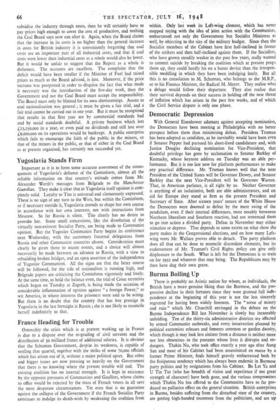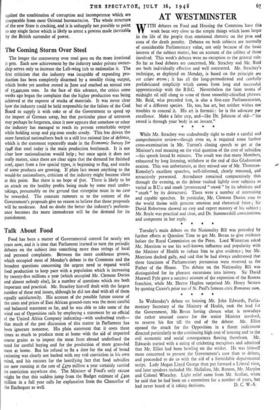Burma Boiling Up
There is probably no Asiatic nation for whom, as individuals, the British have a more genuine liking than the Burmese, and the pro- gressive decline in their fortunes since they were granted full inde- pendence at the beginning of this year is not the less sincerely regretted for having been widely foreseen. The "scene of misery and ruin" which Mr. Churchill envisaged in the debate on the Burma Independence Bill last November is slowly but inexorably unfolding. Ten of the thirty-six administrative districts are affected by armed Communist outbreaks, and every insurrection planned by political extremists releases and foments common or garden dacoity, which though it may look less sinister from a distance is neither more nor less obnoxious to the peasants whose lives it disrupts and en- dangers. Thakin Nu, who took office exactly a year ago after Aung San and most of his Cabinet had been assassinated en masse by a former Prime Minister, finds himself gravely embarrassed both by the fissiparous tendency which has always been endemic in Burmese party politics and by resignations from his Cabinet Be Let Ya and U Tin Tut (who has breadth of vision and experience if not great strength of character) have both gone, and the various compromises which Thakin Nu has offered to the Communists have so far pro- duced no palliative effect on the general situation. British enterprises in Burma, besides suffering from the disturbed state of the country, are getting high-handed treatment from the politicians, and are up
against the combination of corruption and incompetence which are inseparable from most Oriental bureaucracies. The whole structure of the new State is cracking, and it is unhappily not possible to point to any single factor which is likely to arrest a process made inevitable by the British surrender of power.



































 Previous page
Previous page